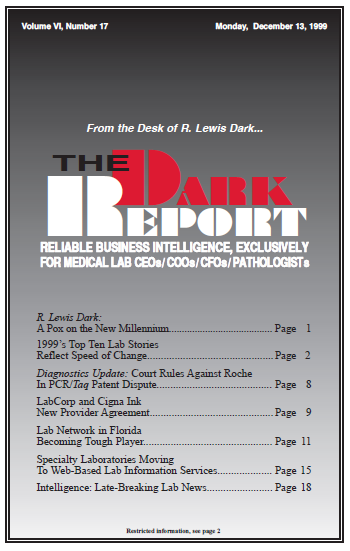DECEMBER 7, 1999 WAS NOT an auspicious day for Hoffmann-LaRoche. One of its patents related to the PCR testing process was ruled invalid by a Federal District Court. The ruling involved Roche’s ’818 Taq patent, an enzyme used in the PCR process. The Court found that the patent holder had intentionally withheld material information and …
Court Rules Against Roche In PCR/Taq Patent Dispute Read More »
To access this post, you must purchase The Dark Report.


